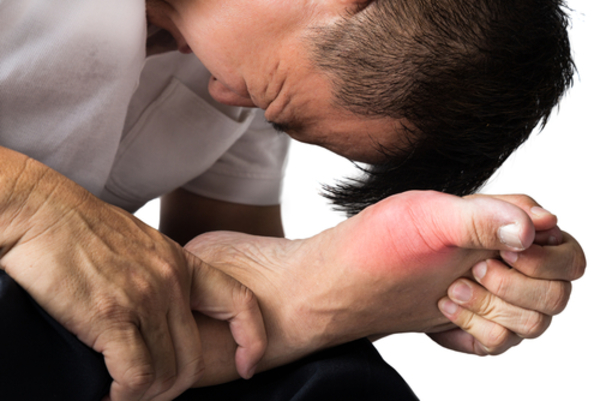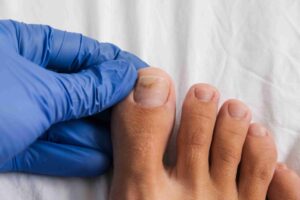What is a Hallux Rigidus? Here are some facts about this condition
Hallux rigidus is the medical term used to describe a painful, stiff big toe. The name means stiff (rigidus) great toe (hallux). The joint affected is the first metatarsophalangeal joint (MTPJ). The bony bump at the big toe joint results from an arthritic growth due to joint destruction and reduced the movement available in the toe. This deformity can cause pain with walking, running and squatting.
The big toe joint is one of the most common joints to be effected and can also be the first joint in the body to develop rheumatoid arthritis. The accurate assessment and diagnosis of this condition is critical to successful management. Hallux rigidus is often misdiagnosed as a bunion deformity due to the enlarged bump at the big toe joint. Bunion deformities and hallux rigidus can also coexist in moderate to severe cases.
Symptoms of Hallux Rigidus
The symptoms of Hallux Rigidus include:
- Pain in the joint when walking, particularly during push off
- Swelling around the joint area
- A bump on the top of the foot
- Severe stiffness in the great toe, particularly when bending upwards
With Hallux Rigidus, patients may require:
- Custom foot orthoses
- Extra width/depth footwear
- Carbon stiffener
- Rocker sole
- Assistance with footwear selection
What Causes a Hallux Rigidus?
The cause of arthritis in the big toe joint can include one or several reasons listed below:
- Trauma
- Any type of systemic arthritis such as rheumatoid, osteoarthritis and gout
- Anatomically long or short 1st metatarsal bone
- Excessive flexibility of foot joints
- Abnormal foot function
- Ill-fitting shoes
- Sport and dance that lead to trauma such as football and ballet
- Genetics
- Previous surgery
Treatment
Treatment aims to reduce the movement of the painful great toe this can occur with
- Turf toe taping
- Rocker soled shoes
- Stiffer more supportive shoes (Birkenstock or a shoe with a similar stiffer forefoot)
- Carbon fibre orthotic insert
- Surgical fusion of the great toe.
- Metal joint replacements rarely work for this condition
Are you suffering from this condition? One of our podiatrist can assist and recommend what treatment options are best to get you back on track. ✅
Schedule an appointment here or you may call us at 44 (0) 207 101 4000. 📞
We hope you have a feetastic day! 👣☀️
-The Chelsea Clinic and Team




